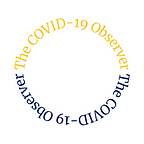With the Help of Catholic Charities, Undocumented People Get Vaccine Access
By Josie Jack
“Vacunas contra el COVID-19,” reads the sign outside the vaccine clinic inside the Sacred Heart of Jesus Catholic Church in Baltimore. During the beginning of the vaccine roll-out, hundreds of undocumented Baltimorians visited the clinic each month, looking to protect their health and livelihoods. Now, nonprofit organization Catholic Charities is worried the undocumented Latinx community is not getting vaccinated fast enough, despite an excess of doses.
COVID-19 vaccines are free and available for all people in the United States, regardless of health insurance or citizenship status — but that does not ensure equal access. Long working hours, language barriers and fear of side effects hold many undocumented people back from getting the COVID-19 vaccine.
Fortunately, nonprofits like Catholic Charities, an organization that works with undocumented Hispanic people in the Baltimore area, are working to change that. Catholic Charities has provided clarity and accessibility to these people over the past year and a half.
“It’s all about being compassionate, helpful, being there for them when they need it, to either provide the services or connect them to the services that they need,” said Mervin Ruiz, COVID-19 hotline coordinator at Catholic Charities.
Ruiz explained that in 2020, his organization created a hotline for people who need services related to COVID-19. The hotline directs people to testing sites, vaccination sites and food or medical assistance.
Catholic Charities teamed up with Johns Hopkins University to create a testing site that does not ask the legal status of patients for undocumented people at Sacred Heart of Jesus Catholic Church — and later, a vaccine site there too.
“The church…has a strong history with the neighborhood, a connection through providing services. They work with the undocumented immigrant Latino population,” Ruiz said.
People can make appointments through the Catholic Charities hotline, which allows them to avoid showing ID or other personal information to unknown medical professionals. Vaccination sites never ask for a person’s immigration status either. This combined sense of community from the church and anonymity through the hotline alleviated some of the wariness this community had toward the vaccine.
Still, barriers persisted. Many vaccine sign-ups were online, but they did not have a Spanish option. Testing sites also often only communicated in English. This created a language barrier for non-English speaking people.
Making appointments and having questions answered through the Catholic Charities hotline bridges the language barrier, as do other organizations’ clinics. Casa de Maryland, an immigrant advocacy group, also established a clinic in Baltimore to assist Spanish-speaking individuals in getting vaccinated.
Ruiz noted that, no matter how many doors are opened to undocumented people to get the vaccine, work can still close them.
“They have jobs without…sick leave. And they are afraid that if they get the vaccine, and they get very ill with side effects, they won’t be able to work for two, three days, and they will lose that income,” he said.
Another work-related barrier is clinic hours. Catholic Charities’ vaccine clinic operates on Friday afternoons. People with jobs that peak on Fridays and weekends, such as servers or hair stylists, cannot afford to take time off on their most profitable days to get the shot.
While Catholic Charities and other charitable organizations cannot solve every barrier undocumented people face while trying to get the vaccine, they continue to try. Initially, Catholic Charities was screening about 850 vaccine appointments a month. As desire to be protected decreases, they have turned more toward outreach.
“We are working on putting together an outreach team,” said Ruiz. “How can we help in terms of answering questions, learning… those reasons why they are hesitant?”
Though Baltimore found ways to help its undocumented Latinx community, there is still work to be done nationwide.
Ruiz recommended a community-based approach for other areas vaccinating undocumented populations. “I think that working with organizations that already have a history in the neighborhood, that already have a connection within a population… gives them the reassurance that they can get it… in a space where they feel safe.”
The pandemic may have separated people physically, but it has united all humans in one way: the pandemic cannot end unless everyone has safe, reliable access to the vaccine.
Josie Jack is a University of Maryland journalism student. She loves writing about the human impact of today’s news. In her free time, Jack enjoys weightlifting, playing with her dog, and listening to music.
Featured photo credit: Sacred Heart Church of Jesus Facebook page
